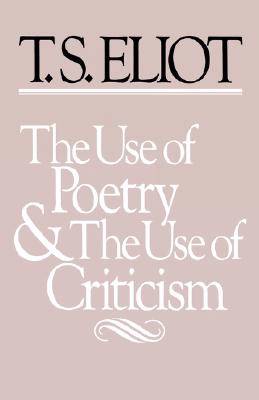
Bedankt voor het vertrouwen het afgelopen jaar! Om jou te bedanken bieden we GRATIS verzending (in België) aan op alles gedurende de hele maand januari.
- Afhalen na 1 uur in een winkel met voorraad
- Gratis thuislevering in België
- Ruim aanbod met 7 miljoen producten
Bedankt voor het vertrouwen het afgelopen jaar! Om jou te bedanken bieden we GRATIS verzending (in België) aan op alles gedurende de hele maand januari.
- Afhalen na 1 uur in een winkel met voorraad
- Gratis thuislevering in België
- Ruim aanbod met 7 miljoen producten
Zoeken
The Use of Poetry and Use of Criticism
Studies in the Relation of Criticism to Poetry in England
T S Eliot
€ 54,45
+ 108 punten
Omschrijving
The 1932-33 Norton Lectures are among the best and most important of T. S. Eliot's critical writings. Tracing the rise of literary self-consciousness from the Elizabethan period to his own day, Eliot does not simply examine the relation of criticism to poetry, but invites us to "start with the supposition that we do not know what poetry is, or what it does or ought to do, or of what use it is; and try to find out, in examining the relation of poetry to criticism, what the use of both of them is."
Eliot begins with the appearance of poetry criticism in the age of Dryden, when poetry became the province of an intellectual aristocracy rather than part of the mind and popular tradition of a whole people. Wordsworth and Coleridge, in their attempt to revolutionize the language of poetry at the end of the eighteenth century, made exaggerated claims for poetry and the poet, culminating in Shelley's assertion that "poets are the unacknowledged legislators of mankind." And, in the doubt and decaying moral definitions of the nineteenth century, Arnold transformed poetry into a surrogate for religion. By studying poetry and criticism in the context of its time, Eliot suggests that we can learn what is permanent about the nature of poetry, and makes a powerful case for both its autonomy and its pluralism in this century.Specificaties
Betrokkenen
- Auteur(s):
- Uitgeverij:
Inhoud
- Aantal bladzijden:
- 160
- Taal:
- Engels
- Reeks:
- Reeksnummer:
- nr. 39
Eigenschappen
- Productcode (EAN):
- 9780674931503
- Verschijningsdatum:
- 1/07/1986
- Uitvoering:
- Paperback
- Formaat:
- Trade paperback (VS)
- Afmetingen:
- 137 mm x 210 mm
- Gewicht:
- 185 g

Alleen bij Standaard Boekhandel
+ 108 punten op je klantenkaart van Standaard Boekhandel
Beoordelingen
We publiceren alleen reviews die voldoen aan de voorwaarden voor reviews. Bekijk onze voorwaarden voor reviews.












